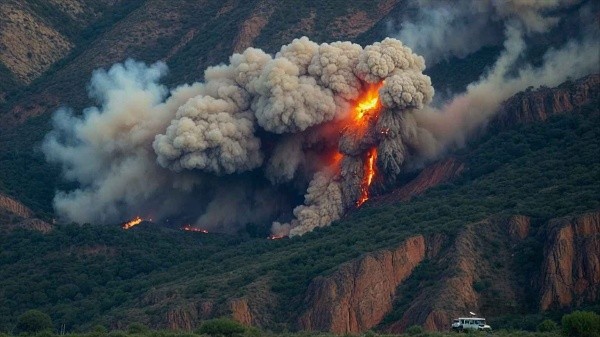Iran’s Plan to Strike Back Against the U.S.
Iran’s Military Preparations Following U.S. Attacks
Loading...

Children, women and paramedics among those killed and wounded in the attacks, Lebanon’s Health Ministry says.
The situation in Lebanon has dramatically worsened as Israeli military actions intensify, particularly in the southern regions and Bekaa Valley. The Lebanese Ministry of Health has reported that recent strikes have resulted in 100 fatalities and over 400 injuries. This alarming escalation has prompted urgent calls for medical facilities in affected areas to prioritize the treatment of those injured, postponing all non-emergency surgeries to manage the crisis effectively.
Targeted Attacks and Humanitarian Crisis
Since early morning, Israeli forces have launched a series of aggressive raids across southern Lebanon, specifically targeting towns such as Zibqeen, Taybeh, and Deir Seryan. Reports indicate that residential areas, including an inhabited house in Naqoura, have been struck, leading to ongoing efforts to evacuate casualties. The intensity of the bombardment has been staggering, with over 80 airstrikes reported within just half an hour, highlighting the scale of the military operation.
The Lebanese Health Ministry has called for immediate action to address the humanitarian crisis, urging hospitals in southern districts, Bekaa-Hermel, and Nabatieh to focus on treating the injured. The situation is dire, with many victims suffering from critical injuries, including children among the deceased.
Government Response: A Call for Justice
Lebanon's caretaker Prime Minister, Najib Mikati, has condemned the Israeli actions, labeling them as genocide aimed at obliterating Lebanese villages. During a cabinet meeting, he urged the international community, including the United Nations and influential nations, to intervene and halt the aggression. Mikati's statements reflect a growing concern over the humanitarian implications of the ongoing conflict and the need for global accountability.
In a related development, the Lebanese Minister of Information's advisor, Mesbah al-Ali, disclosed that the minister had received threats regarding the evacuation of his office. He emphasized that Lebanon's official response to such threats would be through international channels, underscoring the seriousness of the situation. Al-Ali reassured that the country's communication networks remained secure despite the threats.
Broader Impact of the Conflict
The Israeli military operations have not been confined to the immediate border areas but have extended to regions further inland, including the al-Tuffah area and provinces like al-Zahrani, Nabatieh, and Saida. Reports indicate that strikes have also targeted industrial facilities, resulting in additional casualties. For instance, an Israeli raid on an industrial site in Toul led to the deaths of three individuals and injuries to several others.
The ongoing violence has created a pervasive atmosphere of fear and uncertainty among the Lebanese population. As the conflict escalates, the humanitarian toll continues to rise, with hospitals overwhelmed and communities devastated by the relentless bombardment.
Conclusion: A Call for International Intervention
As the situation in Lebanon deteriorates, the urgent need for international intervention becomes increasingly apparent. The Lebanese government is calling for justice and support from global powers to address the humanitarian crisis and protect its citizens from further violence. The international community's response will be crucial in determining the future stability of the region and the safety of its inhabitants. The escalating conflict not only threatens the lives of those in Lebanon but also poses a significant challenge to regional peace and security.
Editor
Iran’s Military Preparations Following U.S. Attacks
Troops remain in five strategic locations, raising fears of renewed tensions and long-term occupation.
Opposition forces have taken control of the capital after a significant offensive. Here is how it unravelled.
